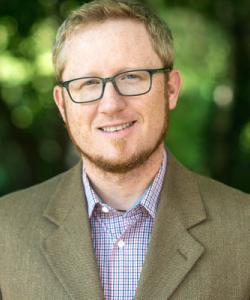Positing radical discontinuity between the human person and nature, modern environmental theories present a dilemma for Christians: either nature has no essential value and may be used and dominated in an unrestricted manner incompatible with Christian stewardship or it has an unqualified value and its preservation may come at the cost of human flourishing. This lecture presents a Thomistic-Aristotelian model of environmental philosophy, refuting this false dilemma. By treating the meaning of (1) nature in connection with (2) the human person, (3) the human good and dignity, (4) the ethical community, and (5) God, the lecture will show that nature has intrinsic, extrinsic, and theological value obligating respect and that nature is ethically objectified for human flourishing. As the human person is continuous with the chain of natural being but also transcendent, a stewardship of prudence, justice, and temperance is needed, where the person is imago dei, co-perfecter of nature.
Recommended Readings
Genesis, 1-2
Aristotle: Physics, I-II, and VI-VIII;
De Anima I.1-2 and II.1-4;
Nicomachean Ethics IVI.
St. Thomas Aquinas: De Principiis Naturae or On the Principles of Nature;
Commentaries on the Physics, De Anima, & Ethics of Aristotle;
Summa Theologiae I, q. 2, a. 3; Summa Theologiae I-II, qq. 1-6 and 12-14.
Francis Bacon: Novum Organum, De Augmentis Scientiarum.
René Descartes, Discourse on Method, VI.
William A. Wallace, The Modeling of Nature: Philosophy of Science and Philosophy of Nature in Synthesis (Washington, D.C.: The Catholic University of America Press, 1996).
John Muir, “Man’s Place in the Universe,” from A Thousand-Mile Walk to the Gulf, ed. by William Frederic Badè (New York, N.Y.: Houghton Mifflin Company, 1916).
Aldo Leopold, “The Land Ethic,” in part III of A Sand County Almanac and Sketches Here and There (New York, N.Y.: Oxford University Press, 1949)
Kathleen Dean Moore, “Leaping Lizards!: What Might It Mean to Recognize the Rights of Nature?,” in Minding Nature, 7.2.
Mariusz Ciszek, “Environmental Ethics from a Thomistic-Personalistic Perspective: Implications for the Sustainable Development Concept,” in Problems of Sustainable Development, 2014, Vol. 9, no. 1, 97-106.
